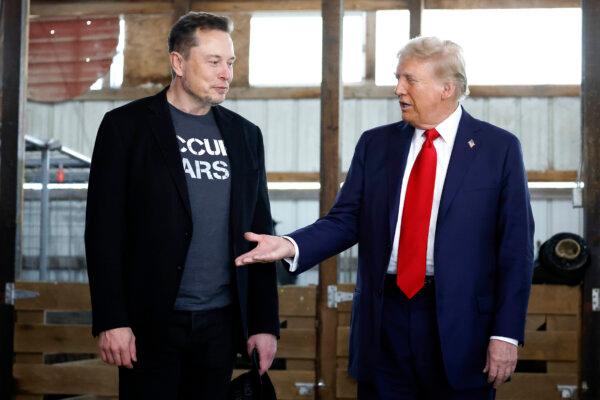Trump Advocates for Abolishing the Debt Ceiling in the U.S.
Trump remarked, “The Democrats have claimed they want to abolish it. If they truly want to eliminate it, I would spearhead the effort.”
President-elect Donald Trump stated that “the smartest action” Congress could take is to eliminate the debt ceiling, following his opposition to a federal government funding deal just one day prior to a possible shutdown.
He stated, “The Democrats have indicated they want to eliminate it. If they want to remove it, I would lead the charge.”
Trump further explained that the debt ceiling “holds no real meaning, except psychologically.”
Senator Elizabeth Warren (D-Mass.) supported Trump’s idea.
For almost one hundred years, the debt ceiling has served as the highest limit lawmakers can borrow to fulfill current commitments, including Social Security, Medicare, and interest obligations. While the debt ceiling acts as a check on government spending and borrowing—and a means of political maneuvering—raising it does not permit new expenditures.
In May 2023, President Joe Biden and then-House Speaker Kevin McCarthy (R-Calif.) increased the debt ceiling and suspended it until January 1, 2025. The Treasury Department is able to extend this period by utilizing extraordinary measures, such as halting reinvestments in federal employee retirement funds, deferring rollovers of maturing securities, and tapping into cash from the general account at the Federal Reserve.
During the last negotiation phase, Trump urged Republican lawmakers to allow the U.S. to default on its debt if Democrats resisted spending reductions.
“However, it’s preferable to the current situation where we’re spending money like drunken sailors,” he added.
Congress has until 12:01 a.m. Saturday to prevent a shutdown.
Trump’s resistance stems from the additions related to a congressional pay increase, efforts to combat hidden hotel fees, and what he termed “favorable provisions for government censors.” It also includes other unrelated clauses, one of which on page 950 indicates the change from “offender” to “justice-involved individual.”
“Increasing the debt ceiling is not ideal, but we’d prefer to address it under Biden’s administration,” Trump commented. “If Democrats resist cooperating on the debt ceiling now, why would anyone assume they would agree in June during our term?”
Trump asserted that his party is committed to supporting farmers, funding disaster relief, and ensuring the U.S.’s success in 2025.
“The only approach to achieve this is with a temporary funding bill devoid of Democrat concessions paired with a debt ceiling increase. Anything else would betray our nation,” he wrote.
Trump warned congressional Republicans that if they endorsed the bill, they could anticipate primary challenges during the 2026 midterm elections.

Former President Donald Trump, the Republican presidential nominee, extends his hand to Tesla CEO Elon Musk backstage at a campaign rally in Butler, Pennsylvania, on October 5, 2024. Anna Moneymaker/Getty Images
“Any member of the House or Senate who votes for this exorbitant spending bill should be removed from office in two years!” Musk proclaimed.
“There needs to be significant change or America faces bankruptcy; hence, massive change is essential!” he added in another post on X.
Musk’s commentary drew criticism from several lawmakers, including Senator Bernie Sanders (I-Vt.), who labeled him “President Elon Musk,” asserting that billionaires should not dictate government policy in the U.S.
House Speaker Mike Johnson (R-La.) indicated that he and his Republican colleagues would reassess their approach. Any new framework would require bipartisan backing in both chambers, given the narrow GOP majority in the House and the slim Democratic majority in the Senate.
House Minority Leader Hakeem Jeffries (D-N.Y.) criticized the shift, alleging that Republicans are foiling a previously agreed-upon bipartisan plan.
“House Republicans have been instructed to shut down the government and negatively impact ordinary Americans throughout the nation,” he stated. “An agreement is an agreement. It was bipartisan, and there’s nothing more to discuss.”
In recent years, Congress has frequently depended on omnibus spending bills and continuing resolutions for government funding.




